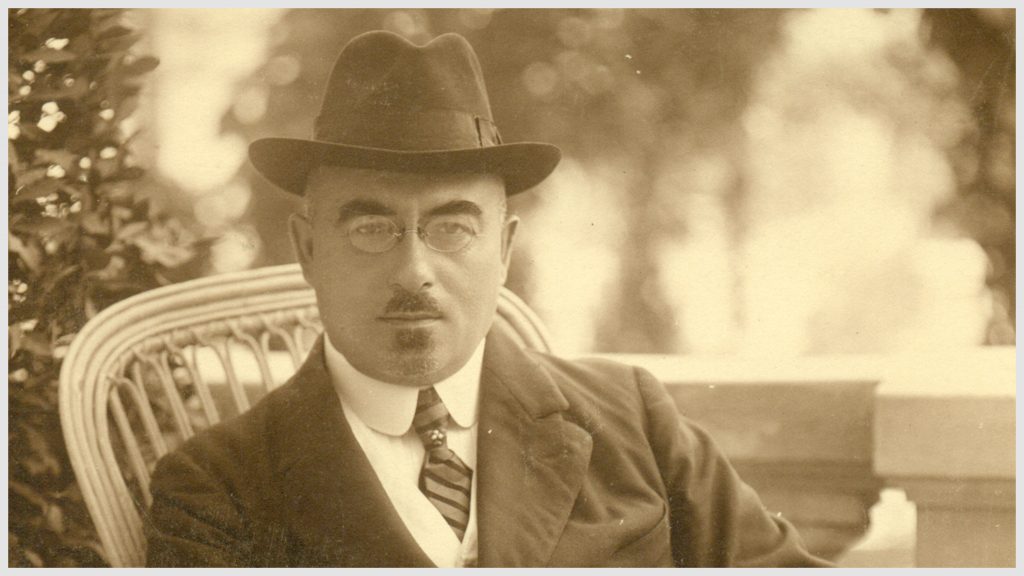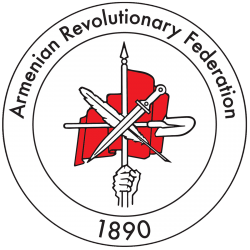Aleksandr Khatisian
 17 February , 1874 -
10 March , 1945
17 February , 1874 -
10 March , 1945
Khatisian was born in Tiflis, Georgia, to a well-known Armenian family. His father was a high-ranking official, respected by Armenian and non-Armenian circles alike. His older brother, Konstantin, was a founding member of the ARF.
Khatisian graduated from the Tiflis State Gymnasium (College) and studied medicine at Moscow University and Kharkov University, then went to Germany for specialized studies. He returned to Tiflis and practiced medicine.
He was a person of varied interests, in particular politics and civil service. He was elected to the Tiflis city council in 1902, and by 1906 he was assistant to the mayor of Tiflis. He served as mayor of Tiflis from 1909 to 1917, and from 1914 to 1917 he was president of the association of Caucasus cities (some 44 in number).
He joined Dashnaktsoutiun only after the 1917 Russian Revolution. Though he had wanted to join the party in 1905, he was dissuaded by Rostom, Hamo Ohanjanian, and others; they argued that as a nonpartisan he could better serve the Armenian people and the ARF.
During his political career he was active in civic live, publishing articles, pamphlets on cultural and health-related topics, and translations from Armenian literature. Russian Viceroy Vorontsov-Dashkov consulted with him and prominent civic leader Dr. Hakob Zavriev about the creation of Armenian volunteer units in the summer of 1914.
After the Russian Revolution, when Tiflis came under Georgian rule and the Transcaucasus was de facto separated from Russia, his life took a different tack. He joined the ARF and from 1917 to 1918 he was mayor of Alexandropol (Giumri). He served as a member from the Armenian National Council in Tiflis. After declaration of the independent Republic of Armenia, he served as foreign minister and signed the Treaty of Batum with the Ottoman Empire.
He then served as prime minister from 1919 to 1920. He was sent abroad by the government to secure loans and organize the establishment of the so-called Gold Fund for the republic. Returning to Armenia in time of war, it fell to him to sign the Treaty of Alexandropol in December 1920.
After the Sovietization of Armenia, Khatisian went to Paris and continued his work, including as a representative of Armenian interests at the League of Nations.
He died in Paris, in March 1945. He was 71.
